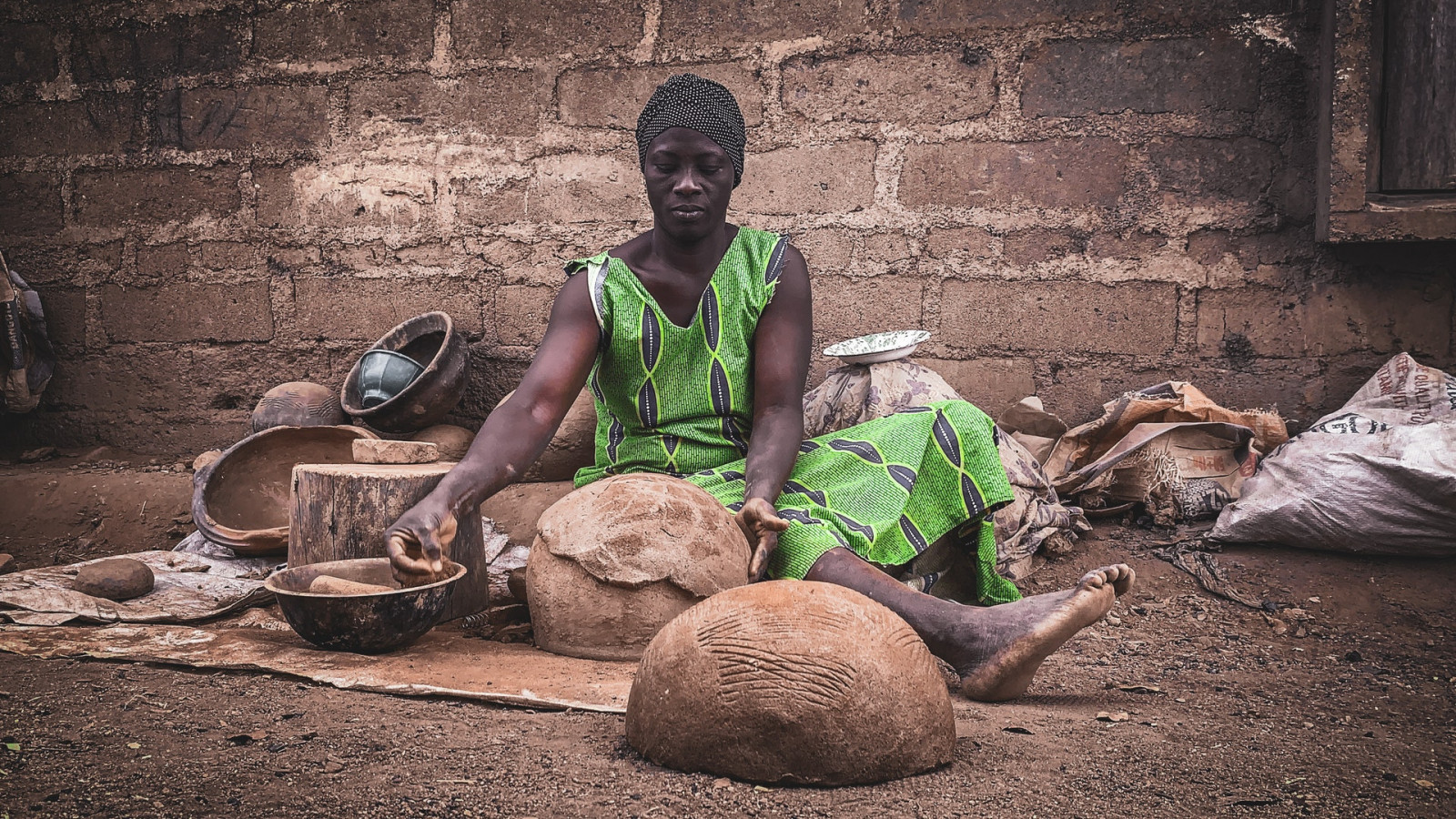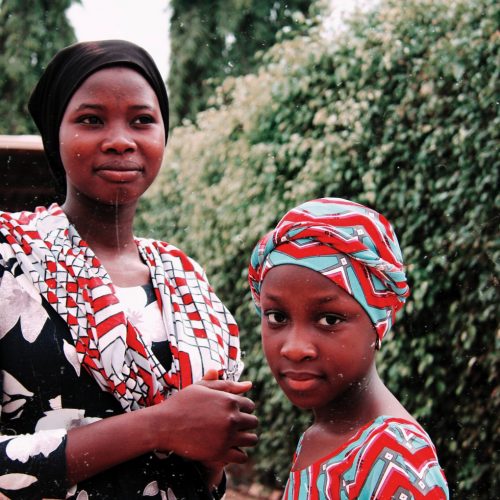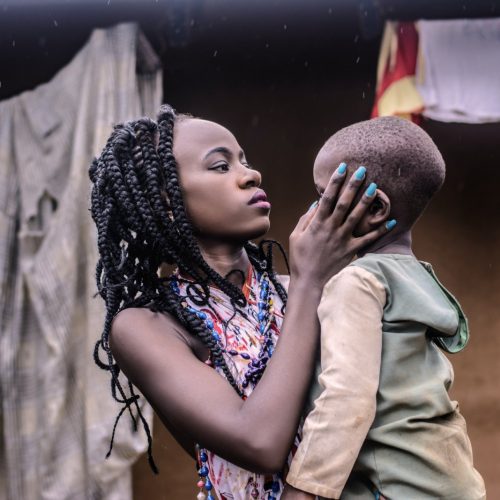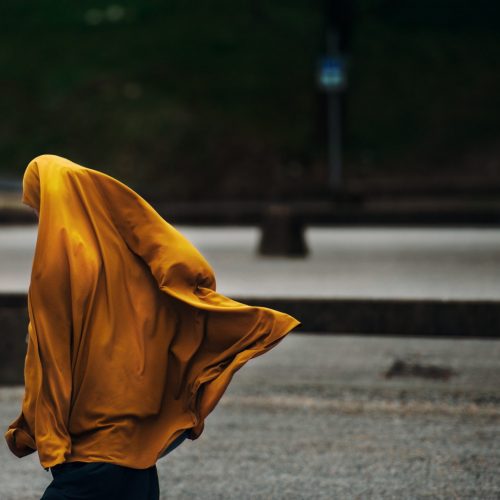As seen by Isaiete Jabulá …
In the Jola community, in northern Guinea-Bissau, widowhood produces severe social and economic penalties for women.
Joanna Davidson, Associate Professor of Anthropology and Associate Director of the Kilachand Honors College at Boston University, invited to give the 3rd webinar, on April 28th, presented on the topic “Quietly Opting Out: Widows & Other Troublemakers in Rural Guinea Bissau,” recalls that in this ethnic-cultural community, there is no word that defines widow, because in the Jola conception, when the husband dies, his house is demolished and his wife is commonly expected to marry his brother, as a way to maintain kinship ties and to ensure marriage for women.
However, in refusing to remarry, the woman is stripped of all family and social support, including being denied the right to inherit her late husband’s farms. In view of this conduct, in the eyes of society she becomes invisible and unnameable, she is categorized as unmarried.
In addition, these women are subjected to a series of mourning rituals that range from eating cold food alone and with the left hand, shaving their heads, wearing their late husband’s clothes or wearing their own inside out, sleeping without stirring during their sleep, dreaming of sex with their late husband, dreaming of having purifying sex with their new husband, to sexual abstinence.
To control the sexuality of the “widows”, trying to prevent them from having sexual relations with other men outside the lineage of the deceased husband, they are stigmatized and desexualized. That is, they are often seen as contaminated by the death of their husbands, carriers of HIV/AIDS, and, especially the younger ones, as prostitutes.
Despite these forms of repression, there is a significant increase in the number of “widows” who refuse to marry their husband’s brother, under the pretext that the latter is economically unable to support two wives and their children. And the reason for this economic crisis and the loss of men’s ability to support their families is due to poor agricultural production because of the reduced rainfall affecting the region, consequences of climate change. These events are weakening the decision-making powers of men in families.
Widows have started to show preference for living alone, in extreme poverty, instead of remarrying, especially with their husband’s brother (levirate), who already have wives and children of their own. As someone points out to Joanna Davidson: “(…) you refuse you know that you and your children won’t be treated right in his house. He has children of his own, a wife of his own. He will always favour them. Your children will be upset and always get into conflicts with him and his children”.
When she answers why she doesn’t remarry, preferring to take care of four children on her own, another woman justifies: “you sit and suffer under the punishment of your husband and when he dies why would you go get punished by another man?”
In the struggle for survival, these women are forced to work hard to support themselves and their children, who often, due to rural exodus, find themselves studying in the cities. And, alone, older women rarely produce enough food for their self-sufficiency. The younger ones, in a collective effort, obtain more income.
Forming a large social group, in a spirit of collective solidarity, the “widows” support each other, providing communal assistance to each other, often displaying a better life than many men. In view of these developments, Joanna Davidson emphasizes that the Jola “widows” are developing a new method of social security, altering gender relations, slowly changing the structure of social organization, kinship practices and traditional ones.
As seen by Blanca Sell Fernández …
This past Wednesday, the 28th of April of 2021, we had the pleasure of having Dr. Joanna Davidson, Associate Professor of Anthropology from Boston University, joining us for the third webinar of the Sexual and Reproductive Rights in West Africa series (SEXRWA), hosted at CEI-Iscte and financed by FCT (PTDC/SOC-ANT/31675/2017).
During this insightful presentation, our speaker discussed about her latest findings revolving around the work she’s been carrying out for over two decades on the widows living in the Jola villages alongside the southern Senegalese border in Guinea-Bissau.
As she shared with us the new dimensions of her ongoing preoccupation and puzzled her way through the ethnographic material she’s gathered over the years, Davidson spoke about the Jola widows she encountered during her fieldwork. A growing number of women whose husbands had died and who found themselves living outside the margins of what is considered to be socially acceptable. These “almost invisible” widows, trying to make ends meet without any male companionship, deeply intrigued our speaker and led her to further wonder about the challenges they faced in their everyday lives.
Like Joanna Davidson pointed out during her talk, despite there not being an official word in the Jola language to describe and designate widows, Jola widowhood certainly does exist. Nevertheless, by remaining nameless, these women and their struggles seem to go unnoticed.
Widows, also referred to as solteiras (meaning “unmarried women” both in Creole from Guinea-Bissau as in Portuguese), live within their communities in hungomahu (sing.) or kungomaku (pl.), small households that noticeably differ from those typically seen in Jola villages, known as elupay* (sing.) or silupaso (pl.) (*which also happens to mean family in Jola). As Davidson explained, shortly after the husband’s death the family’s elupay or silupasu is torn down, and the hungomahu or kugomaku where the widow will live is built. Likewise, the late husband’s land and rice paddies are usually redistributed and reabsorbed into his lineage, leaving his former wife and children in a fragile situation. Therefore, the solteiras who choose not to remarry are left to fend for themselves, and have become known for their great efforts in finding “special ways” of economizing to feed their families.
When Dr. Joanna Davidson conducted her first survey to gather greater information on this matter, it appeared that about an average of 34% of the households of the neighbourhoods in the Jola villages were inhabited by widows and their children. According to her latest research, the number of women living under these same circumstances has only increased over time, reaching nearly 70% in certain areas in the year 2019. Yet, as she came to realize, despite their significant number, this silent phenomenon was not particularly addressed or recognized, and overall didn’t change the ways in which these women were viewed or categorized.
At first, our speaker identified this situation as problematic. Yet, by deepening her inquiries and questioning her own assumptions about the particular struggles and pathways Jola widows navigate, Dr. Joanna Davidson started perceiving the different ways in which these women were opting out of “the marriage plot”. By realizing that, despite the many hardships they faced, Jola widows were choosing poverty and equality over remarriage and control. This made her think about Jola widowhood in a different light and pay closer attention to how these women were discreetly challenging gender norms and threatening the stability of the patriarchal structure in place. A reality that can be seen in their growing refusal of butunorabu (the practice of remarrying one of their deceased husband’s brothers or family members, known in the literature as levirate), as a reflection of how these widows are reclaiming their autonomy and freedom. However, as Davidson pointed out, self-reliance is the most common between widows, many of whom deeply struggled to survive.
Given their differentiated personal experiences, according to Dr. Joanna Davidson, we shouldn’t caracterize widows either as helpless victims or as autonomous agents. Nevertheless, in many circumstances widowhood is actually perceived as desirable by women. As one of the Jola widows put it: “why would you go get punished by another man?”. Thus, among the widows interviewed by our speaker, there seemed to be a general agreement that before men treated their wifes better, and that now things were no longer the same. Likewise, the decrease of the rice economy and the widespread of HIV has had significant consequences in the Jola villages. For Joanna Davidson this can be understood as an erosion of men’s control over women, a barely perceptible change in gender power, making its way through the cracks of the monolithic patriarchy.
As Joanna Davidson explained, men’s decreasing capacity over women is specially linked to their decrease in rice paddy power, exposing marriage as a sort of economic entrapment for women. According to our speaker, widows remain unnamed given that they challenge the fundamental functioning of the Jola household. In their efforts to become productive and self sustaining, these women occupy a murky spot by assuming both masculine and feminine roles. Therefore embodying a phenomenon in motion, one that promotes unorchestrated change and non coordinated resistance and that reveals how the system itself is broken.




